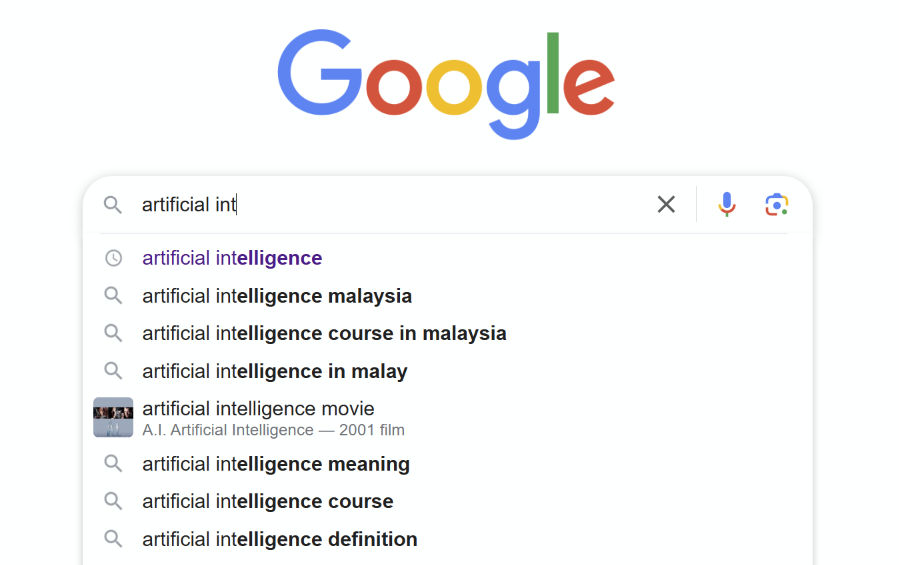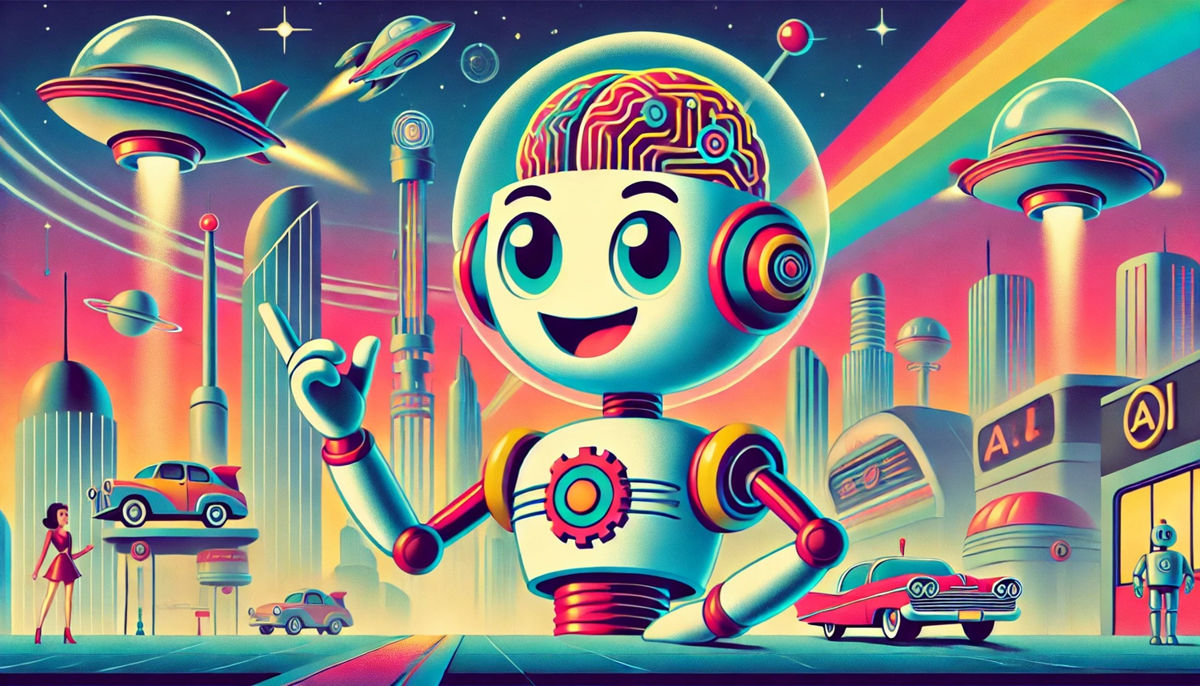Last Updated on March 20, 2025 by Tyler
Artificial Intelligence (AI) is all around you—but exactly what is artificial intelligence? The term artificial intelligence refers to machines that can mimic human thinking, recognizing patterns, making predictions, and learning from data. You might not realize it, but AI is already part of your daily life. From artificial intelligence applications like Google Search predicting your queries to Netflix recommending your next binge, AI is quietly shaping how we work, live, and interact.
Lately, you might have heard names like ChatGPT, Gemini, and DeepSeek in the news. These are different AI models, each designed to process information and generate responses in unique ways. But how does artificial intelligence work, and why is it such a big deal? But how does artificial intelligence work, and why is it such a big deal? Let’s break it down in the simplest way possible.
What is Artificial Intelligence? A Simple Definition
The question of what is artificial intelligence often sparks both curiosity and confusion. Artificial intelligence is, in many ways, like a toddler with an astonishing memory. The field of artificial intelligence is built on the ability to process vast amounts of information, identify trends, and apply learned patterns to new situations. It absorbs vast amounts of information, mimics speech patterns, and recognizes faces—but it doesn’t truly understand what it’s doing.
Give it enough examples of cats, and it will recognize a cat. Ask it a question, and it will generate an answer based on the billions of words it has ‘read.’ But ask it how it feels about cats, and it will struggle. This is because AI, like a toddler, does not experience emotion or independent thought.
Much like a child who learns by watching and copying, AI learns by analyzing patterns. The difference? A toddler, given enough time, develops reasoning, intuition, and creativity. AI, at least for now, does not.
AI in Everyday Life: You’re Already Using It

Similar to a toddler, AI watches everything you do and learns from it. This is the essence of what is artificial intelligence: A system that observes, processes, and adapts. Artificial intelligence improves by analyzing previous behaviors and making increasingly accurate predictions over time. It remembers what you like, repeats what it sees, and, over time, starts to predict what you want next.
✅ Google Search – Like a child finishing your sentences, Google predicts what you’re searching for before you finish typing.
✅ Netflix & Spotify – Netflix suggests what to watch next, like your child handing you the same bedtime story every night because it remembers you liked it before.
✅ Facial Recognition – Your phone recognizes your face the way a baby recognizes a parent.
✅ Navigation Apps – Google Maps predicts the fastest route, like a child noticing that you always take the same shortcut when you send them to school.
As you can see, AI doesn’t think like humans. Instead, it remembers patterns and repeats what it has learned.
Want to Know More? The Two Main Types of AI
If you’re curious about how artificial intelligence works, it mostly falls into two major categories:
1. Machine Learning (ML): Learning from Data
Machine Learning is like teaching a toddler colors. Show them enough red apples, red cars, and red toys, and eventually, they recognize ‘red.’
- Example: Spam filters in Gmail – They analyze thousands of emails and “learn” to detect spam by recognizing suspicious patterns.
- Example: Netflix recommendations – AI analyzes what you’ve watched before to suggest what you might like next.
For a deeper dive, check out Stanford’s AI Index Report, which tracks global AI advancements.
2. Deep Learning (DL): The Advanced Form of AI
Deep Learning is a more advanced form of AI that mimics the human brain. It uses layers of artificial “neurons” to recognize complex patterns.
- Example: Self-driving cars – They use deep learning to recognize stop signs, pedestrians, and other vehicles.
- Example: ChatGPT – It understands language and generates human-like responses by analyzing vast amounts of text.
A simpler way to think about this: Machine Learning is like teaching a child simple math, while Deep Learning is like the child eventually solving complex algebra problems on their own.
Different AI Models: How AI Powers Everything
Just as toddlers learn in different ways, AI comes in different forms depending on what it’s designed to do:
🤖 Generative AI (Creates Things) – Like a child who draws a picture after seeing many drawings, Generative AI creates text, images, and music based on patterns.
📊 Predictive AI (Makes Predictions) – Like a child who knows when bedtime is coming based on routine, Predictive AI forecasts trends and behaviors.
👀 Computer Vision AI (Understands Images & Videos) – Like a toddler recognizing their parents, AI learns to identify objects, faces, and scenes.
🎮 Reinforcement Learning AI (Learns by Trial & Error) – Like a child who touches a hot stove once and never does it again, AI learns through rewards and punishments.
Will AI Take Over? The Truth About AI & Jobs
Many people worry AI will take their jobs, but think of it this way—would you let a toddler run a company? AI, no matter how advanced, still needs adult supervision. It can assist, automate, and enhance—but at the end of the day, it’s only as good as the people guiding it.
AI isn’t here to replace humans. It’s actually here to help us work smarter. When ATMs were invented, people thought bank tellers would disappear. Instead, banking jobs increased because AI handled the routine tasks while humans focused on customer service. The same will happen with AI. The impact on jobs is already happening—how industries adapt will determine the future of work.
For ethical AI concerns, organizations like The Future of Life Institute have been raising awareness on responsible AI development.
Ethical Concerns: Can We Trust the AI Toddler?
Much like a curious toddler who doesn’t yet understand right from wrong, what is artificial intelligence if not a system that follows patterns without true comprehension? It follows instructions, learns from data, and mimics patterns, but it does not grasp fairness, bias, or ethics on its own.
This raises important questions: Who teaches AI? What if the information it learns from is flawed? Can it be trusted to make decisions when it doesn’t truly understand their impact?
🚨 Bias in AI – If AI is trained on biased data, it can reinforce harmful stereotypes, much like a child repeating phrases they’ve overheard without knowing their meaning.
🕵️ Privacy & Surveillance – AI can recognize faces, track behavior, and analyze conversations. But just because a toddler can learn your habits doesn’t mean you want them reporting everything back to someone else.
🤖 Autonomous Decision-Making – Should AI make life-altering decisions, like approving loans or diagnosing medical conditions, without human judgment? A toddler may know that medicine makes people feel better, but they don’t know how to prescribe the right dose. AI, too, still needs supervision.
The challenge isn’t just building smarter AI—it’s raising it responsibly so that it serves humanity fairly and ethically. Just like a child, AI needs thoughtful guidance, boundaries, and the right lessons to grow into something beneficial for society.
How AI is Changing the World (And What’s Coming Next)
The future is AI-powered, but just like a toddler, it still needs careful parenting. The key question isn’t whether AI will shape the world but how we decide to shape AI. (Dive deeper into AI’s future). The impact of AI is only growing. Here’s how it could revolutionize different industries:
🏥 Healthcare: AI doctors can diagnose diseases faster than humans—already transforming patient care.
📚 Education: AI tutors providing personalized learning experiences—reshaping how students learn.
🎨 Creativity: AI-generated movies, music, and art—challenging our ideas of artistic creation.
🚗 Self-Driving Everything: AI-powered transportation reducing traffic accidents—autonomous driving is closer than you think.
Frequently Asked Questions (FAQ)
Can AI become self-aware?
No, AI does not have consciousness or emotions. It mimics human behavior based on patterns, but it does not ‘think’ for itself like a human brain. The question of what is artificial intelligence often leads to confusion, but at its core, AI is just an advanced tool for processing information, not an independent mind.
What is artificial intelligence and how does it work?
Artificial intelligence is a system that mimics human thinking by recognizing patterns, making predictions, and learning from data. It processes vast amounts of information to generate responses, assist with tasks, and even create content.
What is the difference between AI and automation?
Automation follows predefined rules, while AI learns and adapts based on data. For example, a washing machine follows a set cycle, but AI-powered automation, like a smart assistant, learns your habits and suggests improvements.
What are the biggest dangers of AI?
The biggest risks include biased algorithms, misinformation, and job displacement. AI is a tool—it depends on how humans use it. When asking what is artificial intelligence, it’s important to consider how it is trained and used ethically.
How do ChatGPT, Gemini, and DeepSeek fit into artificial intelligence?
These are all AI models designed to process and generate text-based responses. ChatGPT specializes in human-like conversations, Gemini works with multiple types of data (text, images, and audio), and DeepSeek is focused on information analysis. They are practical examples of what is artificial intelligence being used in everyday life.
Do I need to be a programmer to understand AI?
Not at all! AI is becoming more user-friendly, and many tools require no coding knowledge to use. If you’re wondering what is artificial intelligence in simple terms, it’s a way to enhance decision-making, automate tasks, and assist with various activities without needing technical expertise.
What’s the easiest way to start using AI in my daily life?
Try AI-powered tools like ChatGPT for writing, Google Assistant for smart searches, or AI-powered image editors to enhance photos effortlessly. AI is already embedded in your phone, smart home devices, and even email spam filters—making it easier than ever to use artificial intelligence in daily life.
Can AI make mistakes?
Yes, AI is not perfect. Since AI learns from data, errors can happen if the training data is flawed or biased. That’s why human oversight is necessary to ensure AI makes accurate and ethical decisions.
Where is artificial intelligence headed in the future?
AI is expected to become more advanced, integrating into healthcare, education, creativity, and self-driving technologies. What is artificial intelligence evolving into? The answer lies in human innovation—AI is a tool that will expand possibilities but still needs careful guidance.
Conclusion: AI is Here—Are You Ready?
At its core, what is artificial intelligence if not a reflection of human knowledge and guidance? It is not an all-knowing machine, nor is it a futuristic nightmare. It is a very capable toddler, learning rapidly but still dependent on human guidance.
A toddler today could grow up to be a doctor, an artist, or a scientist, depending on how they’re raised. AI is no different. With the right guidance, it could help cure diseases, revolutionize education, or create breathtaking art. The question isn’t whether AI will change the world—it’s how we will raise it.
💡 What’s something AI does today that surprises you? Drop a comment, and let’s discuss!
